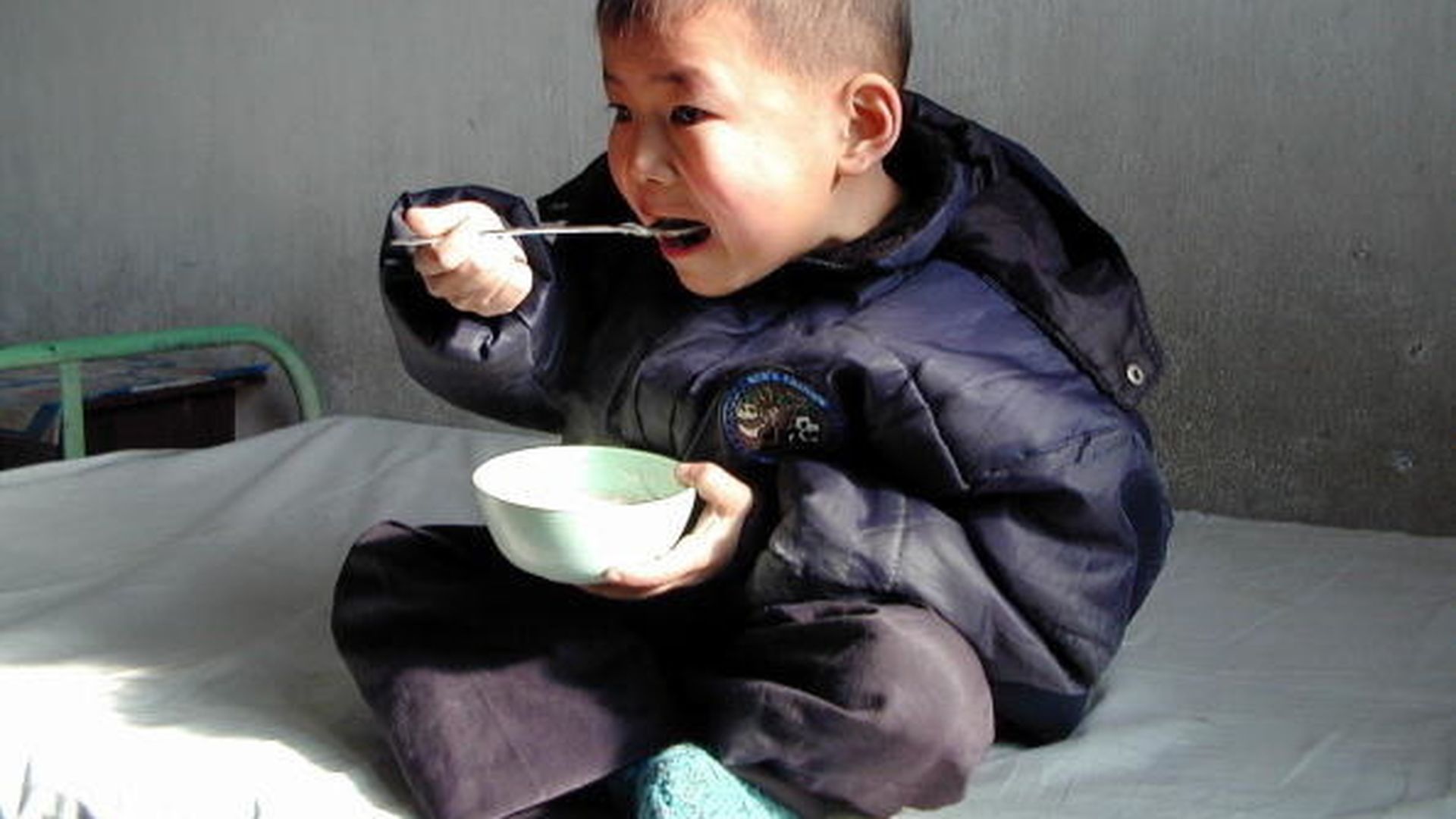
A malnourished boy eats vitamin- and mineral-enriched food at a North Korean hospital. Photo: Gerald Bourken / AFP / Getty Images
Citizens of North Korea are living with levels of disease and malnutrition seldom seen in modern Asia, according to newly reported 2016 data from the Global Burden of Disease Study, an international program of public health researchers.
Among the country's 26 million people:
- One in three have at least one nutritional disorder, most commonly deficiencies in iron, vitamin A, and protein.
- One in four live with latent tuberculosis.
- More than three million harbor intestinal worms, like those found in a recent military defector, which siphon off essential nutrients and are particularly dangerous in children, stunting growth and cognitive development.
- Around three million are infected with the hepatitis B virus.
- More than a million develop pneumonia every year.
Why it matters: North Korea's population is being decimated by infection and malnutrition. Without intervention, its public health crisis will only exacerbate the economic strains of international sanctions and lead to more widespread suffering.
What's next: Drugs and vaccines are available for most of the diseases afflicting the country. International health agencies such as the WHO and Gavi are working to promote access to essential medicines, but Kim Jong-un's threats of nuclear war continue to complicate intervention efforts.
Peter Hotez is a professor and dean of the National School of Tropical Medicine at Baylor College of Medicine, where he holds the Texas Children's Hospital Endowed Chair of Tropical Pediatrics.
